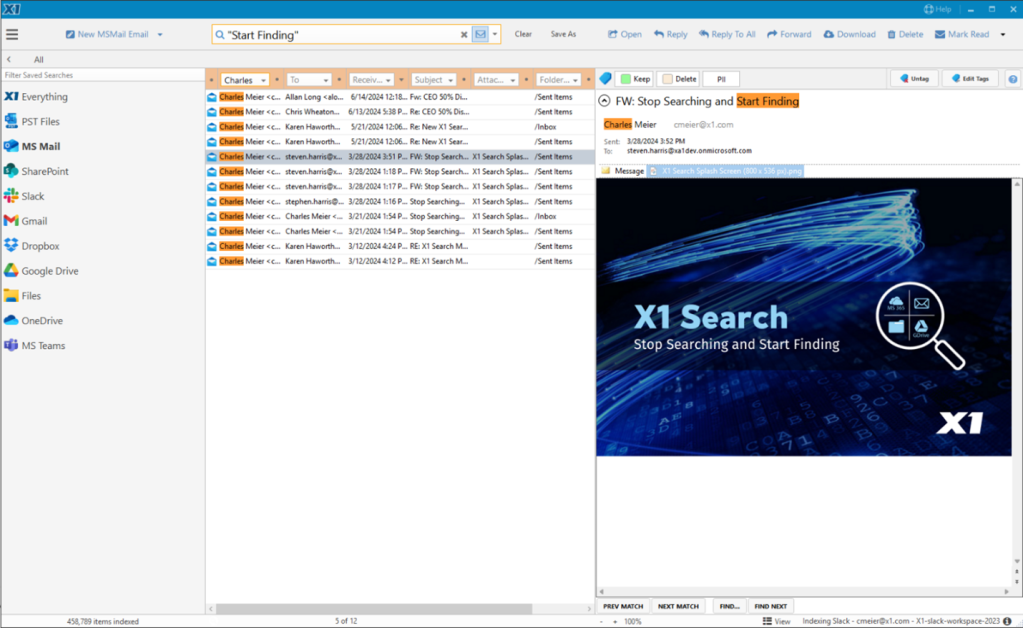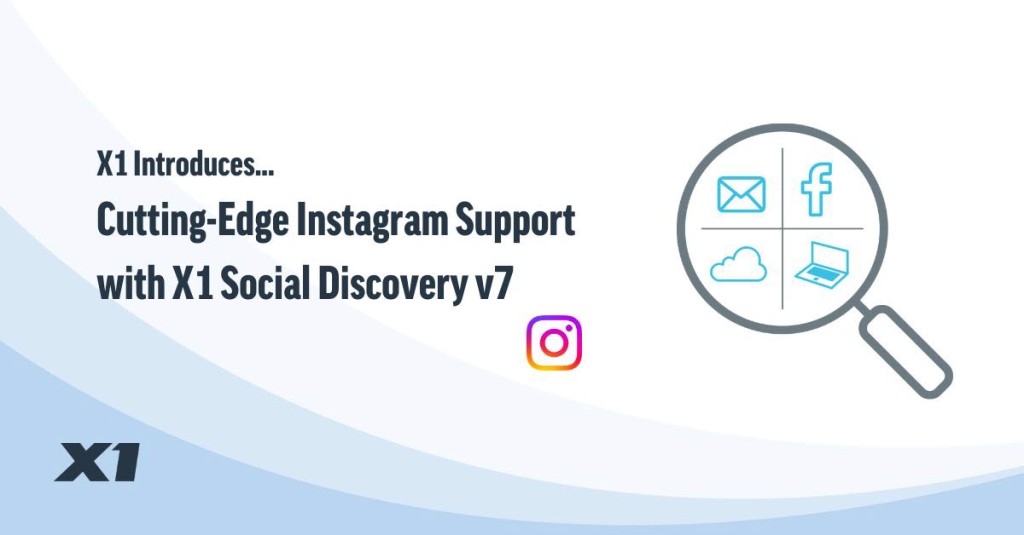By John Patzakis and Chas Meier
Are you tired of wasting hours each week fruitlessly searching across emails, documents, cloud services, and local drives? You’re not alone. Law firms and major enterprises are increasingly recognizing the inherent limitations of legacy enterprise search solutions and turning decisively toward X1 Search.
X1 Search delivers a revolutionary user-based search experience that dramatically boosts productivity. Demand for X1 Search has skyrocketed this year—one major federal agency is expanding from 20,000 to over 40,000 licenses to equip every employee. Nearly half of AMLAW 100 firms now deploy or are actively considering X1. Why this rapid shift?
Traditional enterprise search solutions are fundamentally broken in today’s hybrid-cloud enterprise landscape. They rely heavily on outdated architectures that require mass data duplication and centralization—approaches rendered obsolete by remote work and distributed platforms such as Microsoft 365 and Google Workspace. Specifically, traditional tools face:
- Scalability Roadblocks: Centralizing terabytes of distributed unstructured data is now effectively impossible in the modern enterprise.
- Incompatibility with Modern Platforms: Legacy systems struggle to integrate effectively with platforms like Microsoft 365 due to restrictive APIs and loss of security permissions when the data is copied and exported en masse.
- Regulatory and Governance Challenges: Mass duplication of sensitive data violates critical data protection regulations and contradicts fundamental information governance principles. The GDPR specifically mandates data minimization, particularly when viable alternative technologies exist, as evaluated through a Data Privacy Impact Analysis (DPIA).
Employees in modern organizations effectively have two viable search options: the limited native Windows search or the robust, efficient capabilities of X1 Search. Microsoft Copilot itself recently highlighted X1 Search’s advantages:
“X1 Search offers advanced indexing, instant search-as-you-type capabilities, powerful filtering, keyword highlighting, and document/email previews, significantly surpassing standard Windows Search. Moreover, X1 seamlessly searches across emails, documents, cloud storage, archived data, and more—far beyond Windows Search capabilities.”
X1 Search introduces an entirely new, distributed search architecture uniquely suited to today’s enterprise environments:
• Distributed Micro-Indexing: Patented technology ensures secure, permission-aligned indexing, granting employees immediate, secure access to authorized data only.
• No Mass Data Duplication: Interact directly with original documents without unnecessary duplication, ensuring compliance and efficiency.
• True Federated Search: Search instantly and iteratively across M365, Google Workspace, Slack, and local data sources within a single unified search field—a capability unmatched by any other solution.
The latest X1 Search transcends desktop limitations, instantly searching Microsoft Email, Teams, Slack, OneDrive, SharePoint, local files, and now Google Drive and Gmail, all from one intuitive interface. This empowers users to reclaim hours each day, dramatically boosting productivity.
X1 Search’s intuitive design has won over 500,000 loyal users worldwide. As Max Underwood, from a top defense contracting firm, puts it:
“X1 Search is my go-to, must-have application. Nothing matches its speed and accuracy in helping me find precisely what I need, exactly when I need it.”
Stop Searching. Start Finding.
Traditional search solutions are holding your business back. It’s time to break free and discover why top law firms and enterprises are standardizing on X1 Search.
Take the next step today:
• Individual users: Purchase directly from our website.
• Enterprise licenses: Contact us at sales@x1.com to start the conversation.
Learn more at www.x1.com/solutions/x1-search/ and join the growing ranks of productive, satisfied X1 Search users today.






